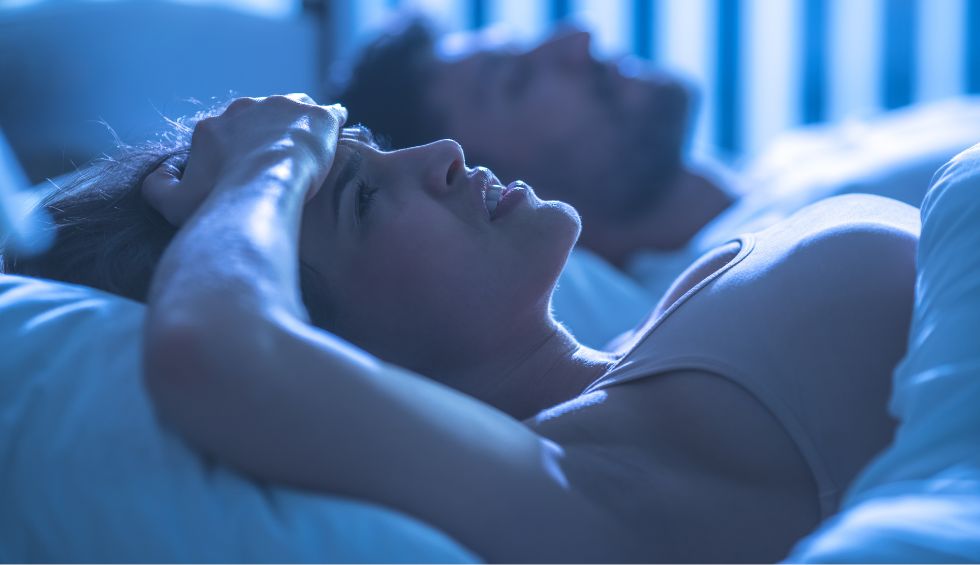Cannabis
Why Canadians Are Smoking Cannabis For Sleep Disorders
Deep Sleep Awaits You: We Recommend the Best Cannabis Strains For Sleep
Sometimes, no matter how hard you try, you simply cannot fall asleep.
You try everything— counting sheep, a weighted blanket, even socks— but nothing helps.
Soon, it’s almost 4 AM, and you’re still tossing and turning.
You remember your friend saying something about cannabis for sleep disorders, and you’re finally ready to give it a try.
If this reminds you of you, you might be dealing with insomnia, a frustrating sleep disorder that affects millions of people in Canada alone.
Don’t worry, though; we’ve got your back.
We’ll be happy to help you get back on the path toward better sleep.
That’s why we’ve prepared today’s feature.
We’ll discuss cannabis for insomnia, sleep apnea, restless leg syndrome, and other sleeping disorders.
We’ll also review some of the best cannabis strains for sleep.
This way, you know what products to go for when you buy weed online in Canada from a cannabis dispensary.
People all around the world have been touting it to be a natural alternative to traditional sleep aids, but can cannabis help with sleep?
Let’s find out!
Common Sleep Disorders Explained
What if we told you that good sleep is actually within your reach?
Are the torturous years you’ve endured are finally coming to an end?
Many disorders and conditions threaten the quality of your sleep.
We’ll help you understand what they are so you know how cannabis can help mitigate them:

1. Insomnia
Insomnia is a common sleeping disorder that makes falling and staying asleep hard.
People experiencing insomnia may also have a difficult time going back to sleep when they wake up in the middle of the night.
They also fidget, toss, and turn as they sleep and wake up feeling tired and unrested.
As you can imagine, insomnia can be debilitating to your mental and physical health.
When you don’t get enough sleep, everything around you crumbles.
You get moody and irritable, and your productivity takes a nosedive.
Your professional or school work is affected, which could come with consequences.
A vast majority of people living with insomnia get depressed.
Others turn to sleeping pills and other traditional sleep aids and quickly become hooked on them.
After some time, they don’t work, forcing them to take more, which makes them feel groggy and lethargic when they wake up the next morning.
The common causes of insomnia include stress, anxiety, depression, grief, chronic pain, and other underlying physical and mental health conditions.
There are two main types of insomnia: acute and chronic insomnia.
Acute insomnia is usually short-lived and caused by stress, changes in sleep habits, or a significant life event.
Chronic insomnia, on the other hand, occurs at least three nights a week and lasts for three months or more.
Many people are now turning to cannabis for insomnia in Canada, touting it to be one of the best natural remedies for sleep disorders. But does it work?
Studies suggest that cannabis for insomnia could work, but there are a few caveats.
For starters, taking cannabis in small doses is reportedly more beneficial for sleep than high doses.
Contrary to popular belief, smoking too much cannabis for insomnia may be counterintuitive.
Smoking cannabis for insomnia for an extended period may also disrupt your sleep cycle.
You should look into how cannabis affects REM sleep.
Before you do so, though, let’s talk a bit more about cannabis for sleep disorders like sleep apnea.

2. Sleep apnea
Sleep apnea is a serious sleep disorder in which one stops and starts breathing repeatedly during their sleep.
This pause in breathing could last between a few seconds to a minute.
It could happen tens or even hundreds of times, forcing one to keep waking up.
Sleep apnea is characterized by:
- loud snoring
- Waking up gasping or choking
- Restless sleep and daytime fatigue
- Irritability or mood swings
- headaches when one wakes up in the morning
- and having difficulty concentrating.
There are three common types of sleep apnea:
– Obstructive sleep apnea (OSA)
Obstructive sleep apnea is the most common type of sleep apnea.
It happens when the throat muscles relax too much, causing them to block the airway.
People living with obstructive sleep apnea may snore loudly, gasp, and choke in their sleep.
Obstructive sleep apnea is commonly reported in overweight males with thick necks or a history of sleep apnea in their families.
– Central sleep apnea (CSA)
Central sleep apnea is much less common than OSA.
This is because it isn’t caused by an obstructed airway but rather due to the brain’s failure to send proper signals to the muscles that control breathing.
When your brain neglects to signal your body to breathe, you make no effort to, despite the open airway.
Therefore, you wake up frequently to catch your breath, often gasping for air.
Your doctor will use a sleep study to monitor your brain waves, breathing, and oxygen levels overnight before diagnosing you with central sleep apnea.
Common causes of central sleep apnea include:
- heart failure
- opioid use
- brainstem disease or injury
- Stroke
- high altitudes
That said, it may also be idiopathic and have no clear cause. It often happens in a cyclical pattern: your breathing slows, stops, and then speeds up.
– Complex sleep apnea syndrome
This sleeping disorder is also called treatment-emergent central sleep apnea.
Complex sleep apnea syndrome is a phenomenon in which one suffers from obstructive and central sleep apnea.
Usually, one is diagnosed with OSA and given a machine to help prevent airway obstruction.
Afterward, the doctor noticed that apneas were still occurring, pointing to central sleep apnea.
Theories suggest that the CPAP machines used to treat blockages may result in changes in oxygen and CO2 levels, interfering with the brain.
Complex sleep apnea syndrome may also be caused by underlying heart or neurological issues.
As smoking cannabis for sleep disorders becomes more popular, many people living with sleep disorders wonder whether this applies to them, too.
In truth, though, evidence supporting the use of cannabis for sleep apnea is scanty and inconclusive.
It’s also worth noting that the American Academy of Sleep Medicine (AASM) recommends against using medical marijuana for sleep apnea.
So, can cannabis help with sleep? Absolutely. But sleep apnea? Highly unlikely.
Smoking marijuana for sleep may make you fall asleep quicker, but it won’t address the cause— an obstructed trachea.
If sleep apnea makes it difficult to fall and stay asleep, it would be a good idea to seek professional help.
And who knows? A CPAP machine may be all the help you need!
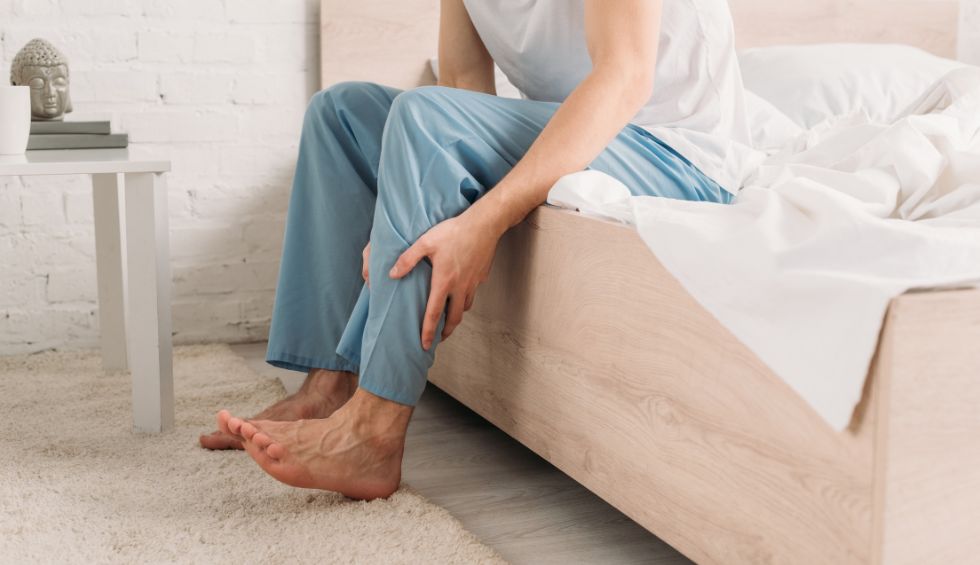
3. Restless legs syndrome
Also known as Willis-Ekbom disease, Restless Legs Syndrome is a neurological disorder significantly affecting sleep.
People with this disorder feel an irresistible urge to move their legs as they sleep.
This urge is accompanied by crawling, throbbing, pulling, aching, and itching sensations that reportedly feel like electric zaps.
It becomes worse when one sits or lies down to rest, especially at night.
Many people with RLS may also experience involuntary spasming or twitching of the legs or arms as they sleep.
This makes it hard for them to fall and stay asleep, affecting their quality of life in the long run.
While the exact cause of RLS is unknown, doctors believe that these factors play a huge role:
- Dopamine imbalance
- Iron deficiency
- Genetics
- Underlying medical conditions, e.g., chronic kidney disease, peripheral neuropathy, Parkinson’s, and pregnancy
- Side effects of some antidepressants, antipsychotics, and other medications
- Caffeine, alcohol, and nicotine intake
To treat, or at the very least manage, restless leg syndrome, doctors may prescribe gabapentin, benzodiazepines, and dopamine agonists.
That said, you have options if you’re seeking natural remedies for sleep orders.
One of these is cannabis for sleep disorders.
However, you must consult with your doctor so you understand how THC and sleep work.
After examining your specific symptoms and medical history, your doctor will be able to determine whether you should buy cannabis for sleep Canada and how much.
They may even recommend the best cannabis strains for sleep to buy at an online dispensary.
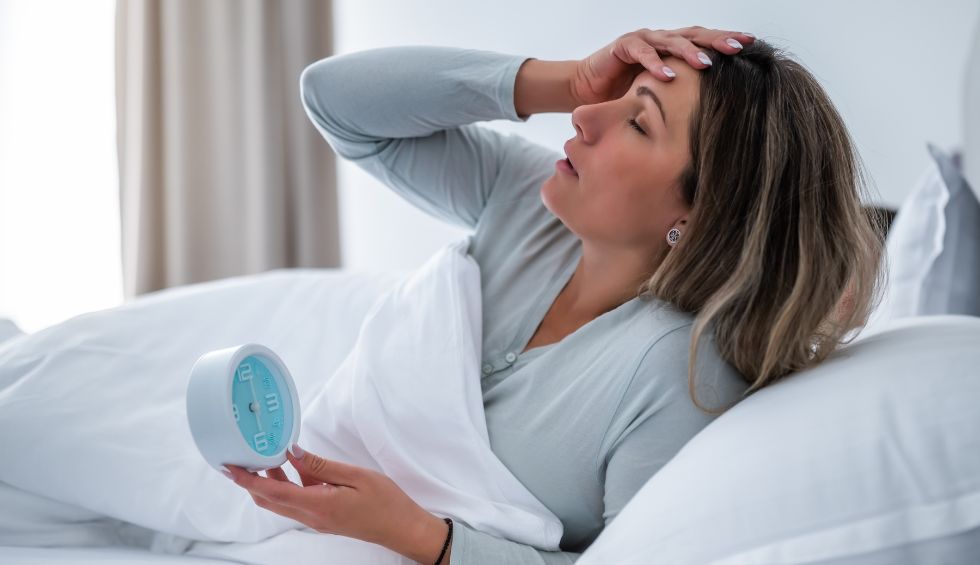
4. Circadian rhythm disorders
Everyone’s body has an internal clock, called the circadian rhythm, that runs on a 24-hour cycle.
This body clock helps regulate sleep, hormone release, wakefulness, and many other bodily functions.
Various conditions affect this internal clock, causing it to be out of sync with the external environment.
These conditions are called circadian rhythm disorders or sleep-wake cycle disorders.
Circadian rhythm disorders cause your sleep-wake cycle to be misaligned with the day-night cycle.
This significantly affects your sleep and, by extension, the quality of your life.
You find it hard to sleep when the world is asleep and hard to focus when the world is up and about.
This eventually results in lethargy, stress, burnout, and even depression.
There are various types of circadian rhythm disorders, namely:
– Delayed sleep-wake phase disorder (DSWPD)
You have DSWPD if you fall asleep and wake up much later than is considered “normal.”
For instance, one may not go to bed till 2 AM and only wake up late in the morning or afternoon.
This is common among adolescents and young adults.
– Advanced sleep-wake phase disorder (ASWPD)
People with ASWPD go to bed and wake up much earlier than they would like.
For example, one may go to bed between 6 PM and 9 PM and wake up between 1 AM and 5 AM. This is commonly observed in older adults.
– Irregular sleep-wake rhythm disorder (ISWRD)
This circadian rhythm disorder manifests as a lack of a clear sleep-wake cycle.
People with ISWRD tend to sleep for short periods throughout the 24 hours but don’t wake up or go to sleep at a defined time.
It is commonly observed in individuals with dementia and other neurological ailments.
– Non-24-hour sleep-wake rhythm disorder (N24SWD)
This happens when the individual’s circadian rhythm is misaligned with the 24-hour day and night cycle.
As a result, they fall asleep and wake up later and later each day because they aren’t in sync with the external environment. It is most common among blind people.
– Shift work sleep disorder (SWSD)
It commonly affects people working traditional hours, such as rotating or night shifts.
Since this work schedule conflicts with their natural sleep cycle, these individuals may find it hard to sleep, leading to excessive sleepiness and lethargy.
– Jet lag disorder
When one travels rapidly across different time zones, a temporary circadian rhythm disruption occurs.
When one’s body clock is misaligned with the local time, one may experience sleep disturbances, leading to daytime lethargy.
Before you buy medical marijuana for sleep disorders, it’s crucial to conduct some research on cannabis’s effects on circadian rhythms.
You could also speak with a doctor who will prescribe the best cannabis strains for sleep.
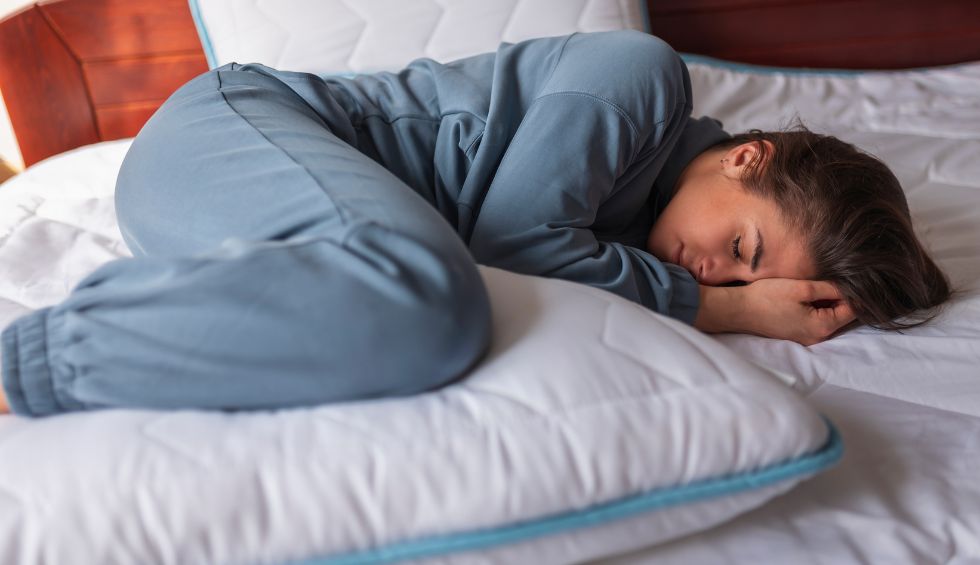
How Does Cannabis Affect Sleep?
If you’re wondering whether cannabis for sleep disorders works, you’re in the right place.
We’ll tell you whether or not to smoke cannabis for insomnia and whether we recommend the cannabis sleep aid.
To do so, we’ll need to explain how medical marijuana for sleep works.
The body has a network of internally secreted cannabinoids and CB1 and CB2 receptor proteins.
This network, known as the endocannabinoid system (ECS), traverses the entire body.
The endocannabinoid system helps regulate numerous bodily functions, including memory, appetite, temperature, mood, libido, and sleep.
Well, cannabis contains an abundance of THC, CBD, CBN, and other cannabinoids.
These chemicals interact with the body’s ECS, leading to alterations in normal bodily functions.
This may result in improved appetite, an enhanced mood, and an easier time falling and staying asleep.
That’s why so many people are using cannabis for insomnia and other sleep disorders.
THC and sleep, CBD for insomnia, CBN for sleep— these different cannabinoids all have a role to play in ensuring you have a deep, restful sleep.
That said, it’s crucial to discuss how cannabis affects REM sleep.
By suppressing or delaying REM sleep, cannabis may make it hard for you to dream and even enjoy deep sleep.
That’s why sleep doctors advise against smoking cannabis for sleep disorders every day.
And if you are using cannabis for insomnia daily, we recommend sticking to a low dose.
You could also go for CBD for insomnia now that you know how THC and sleep work.
THC vs CBD For Insomnia: What’s the Difference?
If you’re considering using cannabis for sleep disorders, you’ll need to choose between THC, CBD, and CBN for sleep.
So, which goes together better— CBD for insomnia or THC and sleep?
Well, to start with, THC is psychoactive. This means it will make you feel intoxicated or “high,” as stoners call it.
THC is also known to have sedative properties, thereby inducing drowsiness.
You can, therefore, fall asleep when you smoke a strain with lots of THC. THC also reduces REM sleep, a crucial part of restorative sleep.
THC may also be responsible for cannabis’s effects on circadian rhythms.
CBD, on the other hand, is non-psychoactive and thus won’t get you high.
It also reduces anxiety and calms the nervous system, making falling and staying asleep easier.
So, does CBD for insomnia work? Yes, like a charm.
That said, CBN for sleep is also becoming more popular.
As we continue studying the cannabinoid, we’re likely to come up with CBN cannabis for insomnia.

Why Use Cannabis For Sleep Disorders?
Sleeping conditions like insomnia, restless leg syndrome, and circadian rhythm disorders can be incredibly disruptive to your life.
If you turn to traditional sleep aids, you may soon find yourself becoming dependent on them.
That’s why the cannabis sleep aid is so essential.
By providing natural remedies for sleep disorders, THC and CBD make it possible for people to manage their sleep challenges organically and holistically.
Smoking cannabis for insomnia has fewer side effects than benzos and Ambien, both of which may make you feel groggy and disoriented when you’re awake.
When you smoke cannabis for sleep disorders, all you have to worry about is dry eyes and dry mouth.
By helping relieve stress, anxiety, and physical pain— all of which are common disruptors of sleep— cannabis makes it much easier for you to enjoy deep sleep.
Risks, Tolerance, and Things To Know
We don’t intend to paint a rosy picture of cannabis for sleep disorders and tout it as a one-size-fits-all remedy.
As we’ve mentioned, evidence supporting the connection between THC and sleep apnea is pretty inconclusive.
We must also point out some of the risks and potential side effects you expose yourself to when you use cannabis for insomnia regularly:
- A build-up in your body’s tolerance to THC
- REM sleep suppression
- Potential daytime grogginess
Before you start smoking cannabis for sleep disorders, make sure to consult a medical professional.
They will answer that cannabis can help with sleep and tell you how to go about using the cannabis sleep aid.
You could even ask them to recommend the best cannabis strains for sleep.
This is the best way to ensure safe and informed smoking of cannabis for sleep disorders.
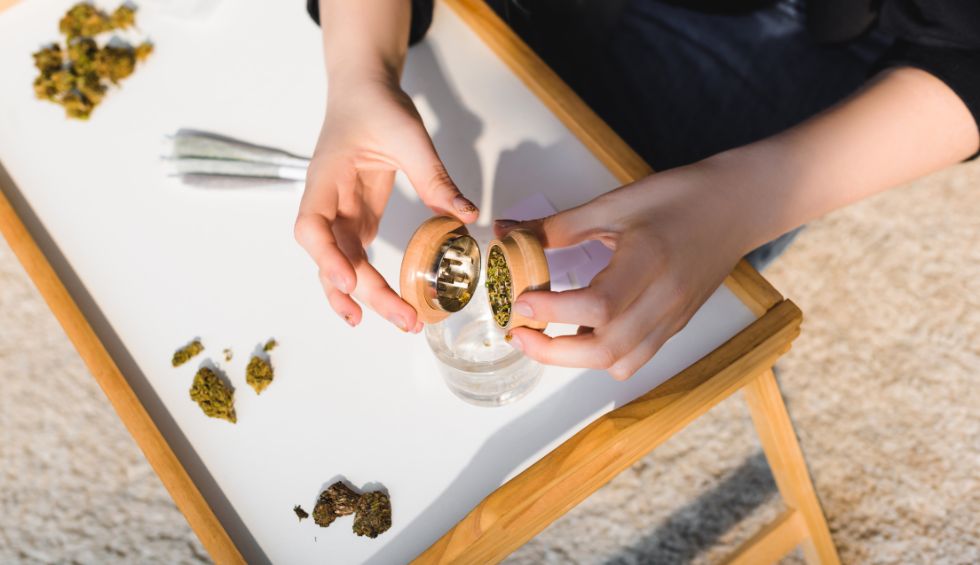
Final Thoughts: Buying Cannabis For Sleep Disorders
If you’re living with insomnia, restless leg syndrome, or some other sleep disorder, you should consider using medical marijuana for sleep.
We are DispensaryNearMeNow, a leading cannabis store serving cannabis enthusiasts nationwide.
Our online weed dispensary makes it easy to buy weed online in Canada and have it shipped to your door.
It doesn’t matter where you are; we’ll deliver your cannabis for sleep disorders safely, promptly, and discreetly.
Whether you’re looking for high-THC edibles, vape carts, or flowers, our online weed dispensary has your back.
We sell some of the best cannabis strains for sleep and are the best place to buy CBD for insomnia.
Feel free to order weed online or buy cannabis for sleep in Canada, and we’ll have you snoring in no time!

